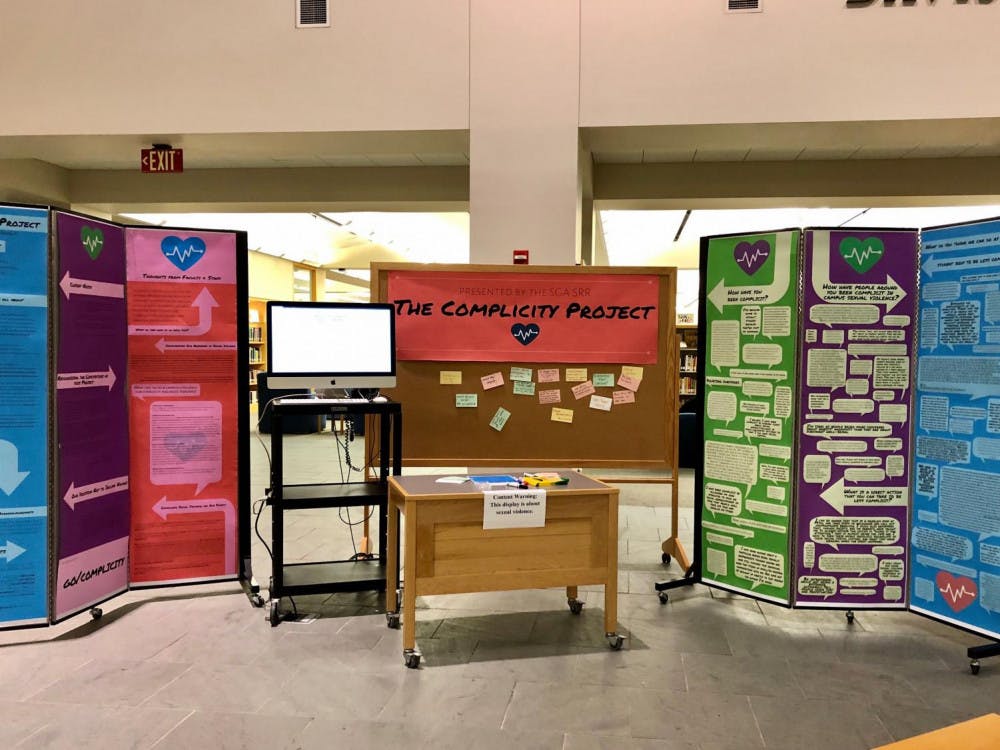From far away, this week’s display in Davis Library appears a brightly-colored mosaic of posters. But upon closer inspection, the set-up reveals a carefully-curated collection of quotes and photographs that address ideas of campus complicity in issues of sexual assault and harassment at Middlebury.
The display was part of the Complicity Project, an initiative coordinated by the SGA Sexual and Relationship Respect Committee. The committee focuses on issues related to sexual respect such as bystander intervention.
Student responses from the go/complicity survey informed the display. The survey, conducted in the weeks preceding the exhibition, asked a variety of questions, including: How have you been complicit? What are examples you’ve heard/seen of people around you being complicit in campus sexual violence? What do you think we can do as a student body to be less complicit?
Posters also featured quotations from faculty members who the committee had interviewed and photographs taken during tabling events in which students responded to issues of complicity on campus.
The committee is co-chaired by Cece Alter ’19.5 and Vee Duong ’19. “I really appreciated how people have engaged with it,” Alter told The Campus. She hopes that the project will get people to start conversations about sexual violence on campus and how to change it.
“I want people to think more critically about their place in a culture that perpetuates sexual violence,” Alter said, discussing the importance of speaking up when someone makes a harmful comment or joke.
Renee Wells, director of education for equity and inclusion, stressed the immense impact individuals can have in addressing issues of sexual violence. “Change always happens through individuals. It’s individuals who change systems, but it’s also individuals who change other individuals,” Wells told The Campus.
Wells encouraged students to engage in conversations with their peers to discuss these issues.
Throughout the process of crafting the library display, the committee incorporated feedback. They removed individual identifiers from the stories, placed disclaimers and content warnings with the display and included survey responses which disagreed with the project.
“For some survivors, some of the actions that other people have labeled as complicit are actually coping mechanisms for surviving,” Alter said, addressing some of the problems with the project. She explained that the purpose of the project is not to place blame on anyone.
On Thursday, April 18 at 4:30 in Hillcrest 103, Wells, along with Barbara McCall, director of health and wellness education, will be running a workshop centered around discussions of complicity. Wells explained that the workshop will be discussion driven and will look at issues such as why there is frequently silence around issues of sexual assault.
Wells said that since coming to campus this Fall, she has been impressed by students’ passion and investment in addressing issues of sexual assault on campus. “For me, it gives me a lot of hope,” she said.
Comments




